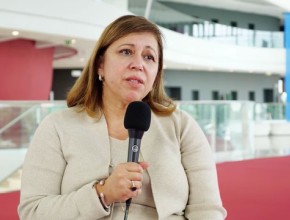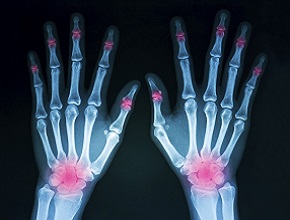Dr Christian Dejaco is an associate professor in the Department of Rheumatology at the Medical University of Graz (Austria) and author of the European League Against Rheumatism (EULAR) recommendations for the management of polymyalgia rheumatica and large vessel vasculitis.
There has been a growing number of cases of new-onset rheumatoid arthritis in older patients. What are the clues to suspect that joint pain may not be caused by osteoarthritis?
Christian Dejaco, MD, PhD: In elderly patients we often have a situation that they have complaints for several reasons. Many elderly patients have degenerative joint disorders, but on top of that they also frequently develop inflammatory rheumatic diseases. Sometimes it is really a challenge for the rheumatologist to distinguish whether the joint pain is caused by degenerative disorder or by concomitant inflammatory rheumatic disease.
What can help? The history can help: whether it is a typical inflammatory pain, which is usually a characteristic night pain in the second half of the night or in the early morning, and whether patients are suffering from prolonged morning stiffness, which is also indicative of an inflammatory condition. Then there’s the clinical examination, when we see joints swelling. Joint swelling is more indicative of an inflammatory disease than of a degenerative disorder. And of course lab results, where raised inflammatory markers indicate an inflammatory disease.
In the recent years imaging has been used more and more frequently, and there is an especially high value of ultrasound. So when we have an elderly patient with suspicion of an inflammatory joint disease, we conduct ultrasound examination to better objectify whether the joint pain is caused by inflammation or by degenerative causes.
Rheumatoid factor (RF) is one of the lab tests that we can perform. RF and antibodies to cyclic citrullinated peptide (CCP) may indicate the presence of rheumatoid arthritis. Although we do have individuals with rheumatoid arthritis among the elderly who are negative for both RF and CCP antibodies, when these 2 are present—especially in high titers—this is an indication for the presence of rheumatoid arthritis of the elderly.
 English
English
 Español
Español
 українська
українська








